Immigration: Brexit an opportunity to fix 'broken' system
- Published
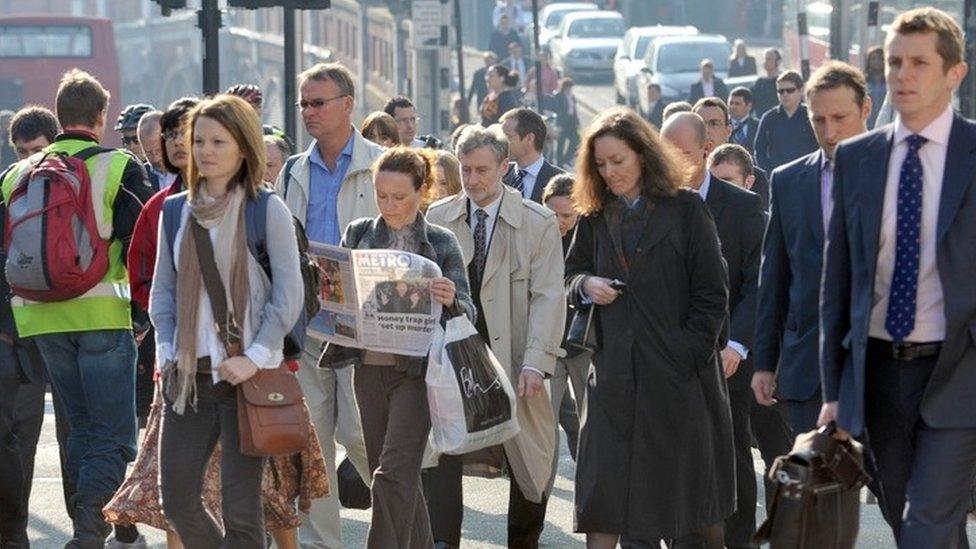
Net migration has remained above 300,000 for more than a year
The vote to leave the EU is a chance to fix the UK's "broken" immigration system and restore trust in controlled migration, a report says.
Think tank British Future said the Brexit referendum outcome was a "vote of no confidence" in existing policies.
It said public expectations of curbs on low-skilled migration must be met.
The think tank has also released a survey suggesting almost half of Britons do not believe the government will reach its net migration targets.
Ministers have pledged to reduce net migration to below 100,000 by 2020.
British Future's report is published ahead of the release on Thursday of the latest net migration figures.
Details of the number of people coming to the UK for more than a year from across the EU and the rest of the world will be published at 09:30 BST - covering the year to 31 March.
Net migration - the difference between the estimated number of people settling in the UK and those emigrating - rose to 333,000 in 2015, the second highest figure on record, and has been above 300,000 for the past five quarters.
Prime Minister Theresa May has said she is sticking with her predecessor David Cameron's target of bringing the annual figure down to less than 100,000 - even though he fell well short of this during the last Parliament.
Opposition parties and some Tories have called for the target to be ditched, arguing it is distorting priorities and will be unachievable even outside the EU. But ministers say it is still a valid benchmark for "sustainable" migration levels.
Totem
In its report, British Future - which describes itself as a non-partisan body focused on addressing issues of migration, integration and identity - said the target was a "symbolic totem" for many and the failure to meet it had damaged public trust but it was unlikely to be reconsidered until the shape of the UK's Brexit deal became apparent.
"After the referendum, the debate about the future of the headline target will have little practical impact until the contours of future UK immigration policy become clearer," it wrote.
"Nobody in government or outside of it could possibly be in a position to make a sensible long-term judgement about future immigration targets without knowing more about the Brexit deal itself, about prevailing conditions in the UK economy and their impact on inward and outward flows."
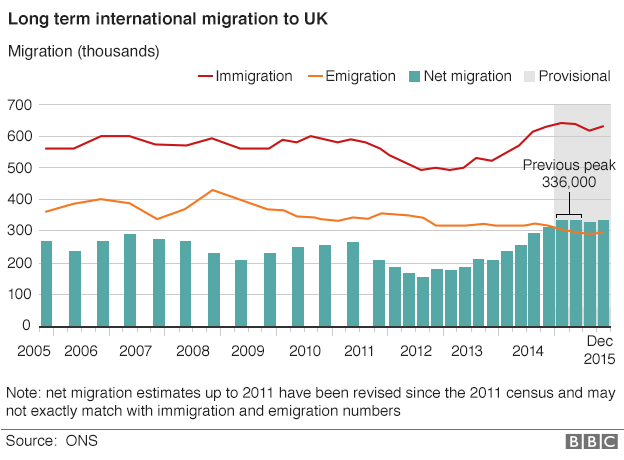
Instead, policymakers should focus on coming up with "workable alternatives" for presenting their objectives pending what it said should be a far-reaching review of immigration goals and a "national conversation" about future options.
"Britain's current immigration system is broken and is not working for anybody," it said. "Leaving the EU will have a major impact on almost all aspects of immigration policy.
"While Brexit will present challenges for decision-makers, it also offers and opportunity to get policy right in this area and to help secure consent for the immigration that we have."
Meanwhile, British Future's survey of 2,400 people says 44% of those polled said the target was unlikely to be met in the next five years - even after Britain withdraws from the European Union.
But 37% still thought the target was likely to be achieved.
Sunder Katwala, director of the think-tank, said: "Public trust in governments' competence to manage immigration - including meeting its own targets - is at rock bottom."
'Definition of madness'
During the referendum, Leave campaigners said exiting the EU would allow the UK to determine who came into the country but mostly stopped short of saying greater controls would result in a fall in immigration.
Brexit negotiations, which will not begin in earnest until the start of 2017 at the earliest, are likely to hinge on to what extent continued access to EU markets can be squared with limits on immigration from the EU.
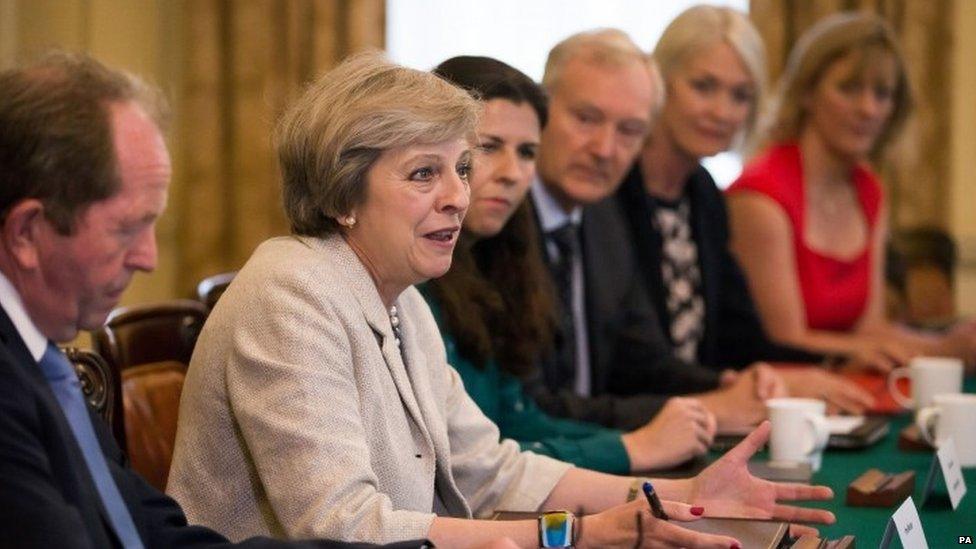
The new prime minister has said immigration is too high and needs to come down
Thursday's report said it would be unacceptable for there to be no restrictions on the right of other EU citizens to come to live and work in the UK given the strong public support for this.
And while the public broadly accepted the need for employers to be allowed to continue to recruit highly skilled migrants from across the world, it said, economic arguments for migration had fallen on deaf ears during the referendum and must be reconsidered - with more priority given to managing the consequent social pressures.
As well as giving local authorities funding to mitigate the impact of immigration on public services, it said, more emphasis must be placed on helping integrate migrants in their new communities and bodies should be set up in all cities and regions with devolved mayors to coordinate approaches.
NHS staff
Another think tank, the left-leaning Institute for Public Policy Research, said the net migration target should simply be abandoned in favour of separate targets for low-skilled and high-skilled immigration.
"They say the definition of madness is repeating the same thing and expecting a different result," its associate director Phoebe Griffith said.
"Yet the government continue to stand by a net migration target that neither the public nor many ministers have confidence in.
"Having a net migration target is like having a target for the number of sunny days in a year; it's not going to change the weather by itself.
"The government need to design policy to balance public concerns with the needs of different sectors of our economy."
The IPPR's own research suggests there are currently about 55,000 EU nationals working in the English NHS, with one in 10 of the UK's registered doctors an EU national, and the health service would "collapse" without them.
It said all EU nationals who work for, or as locums in, the NHS should be eligible to apply for British citizenship.
- Published16 August 2016
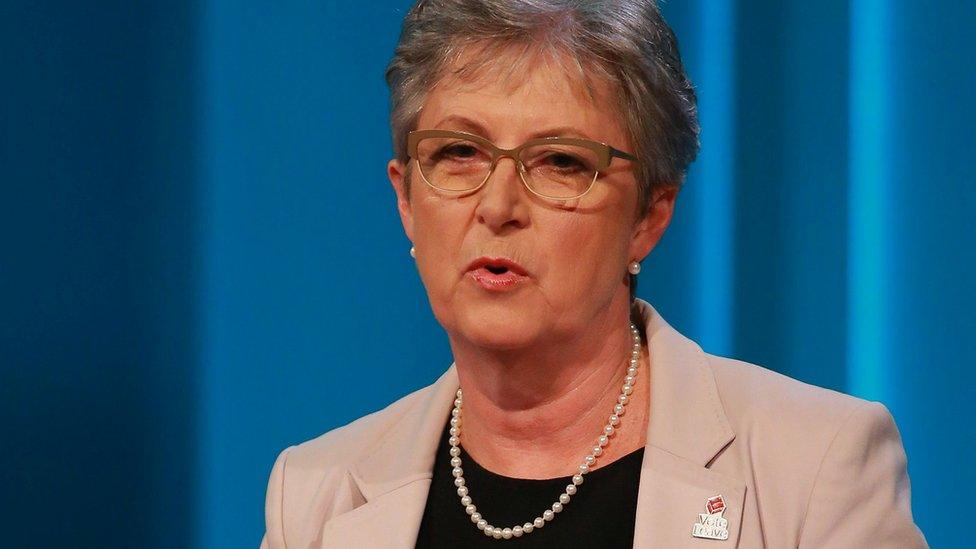
- Published19 July 2016
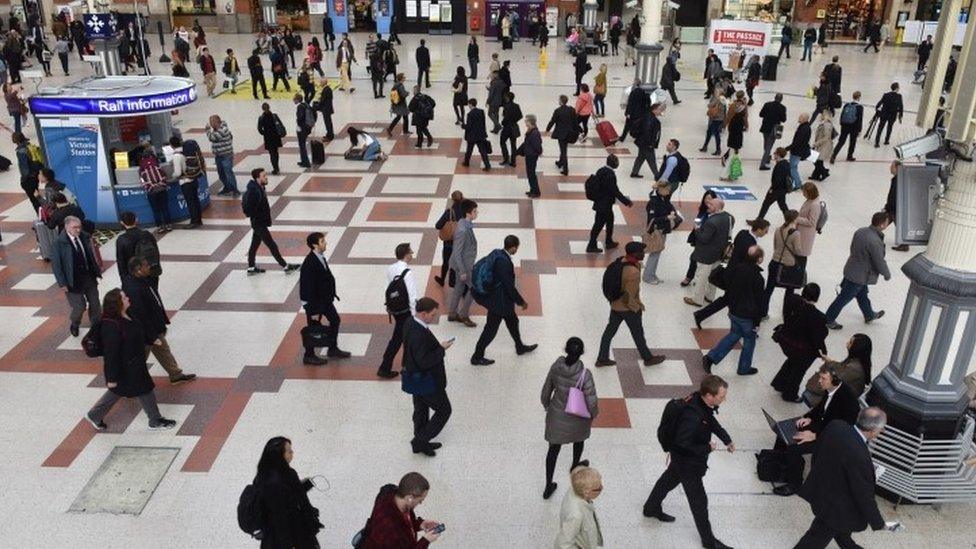
- Published1 September 2016
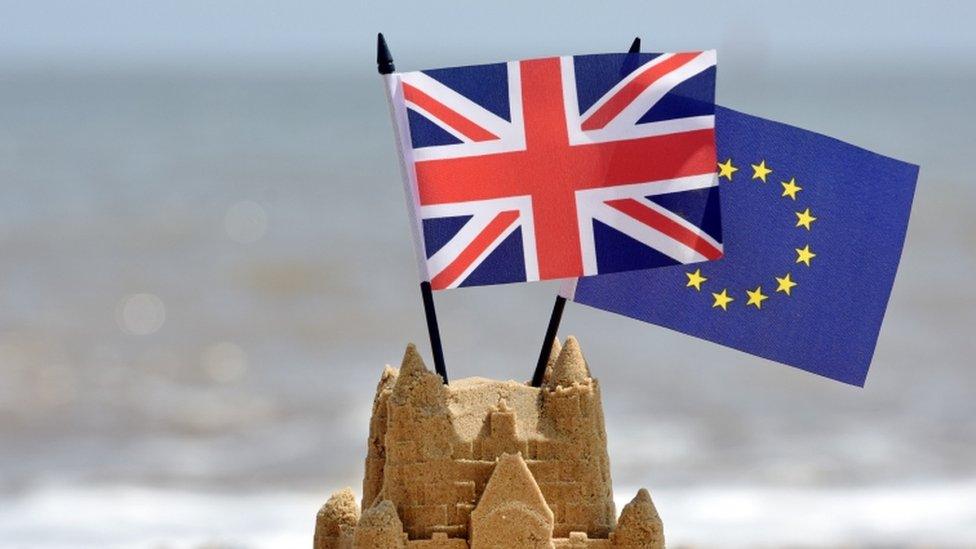
- Published26 May 2016
